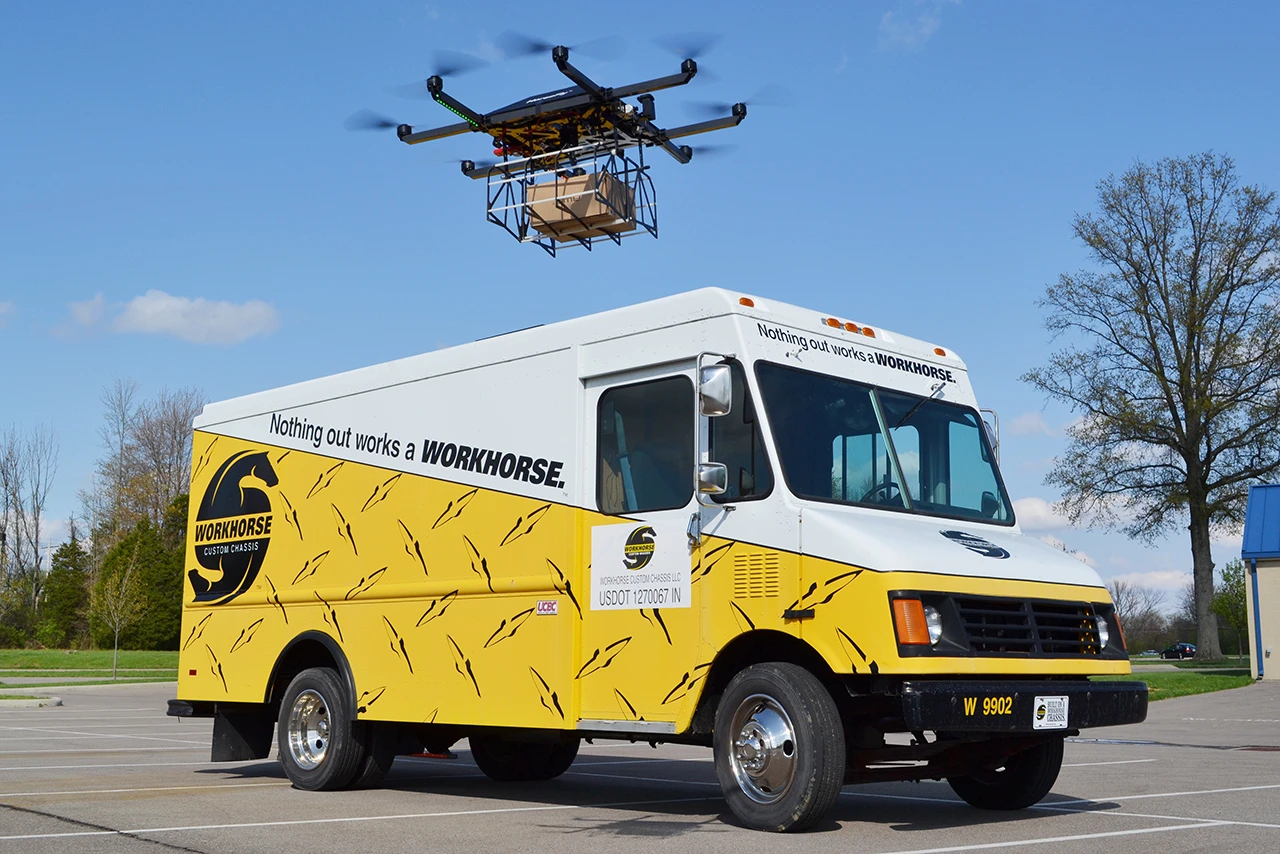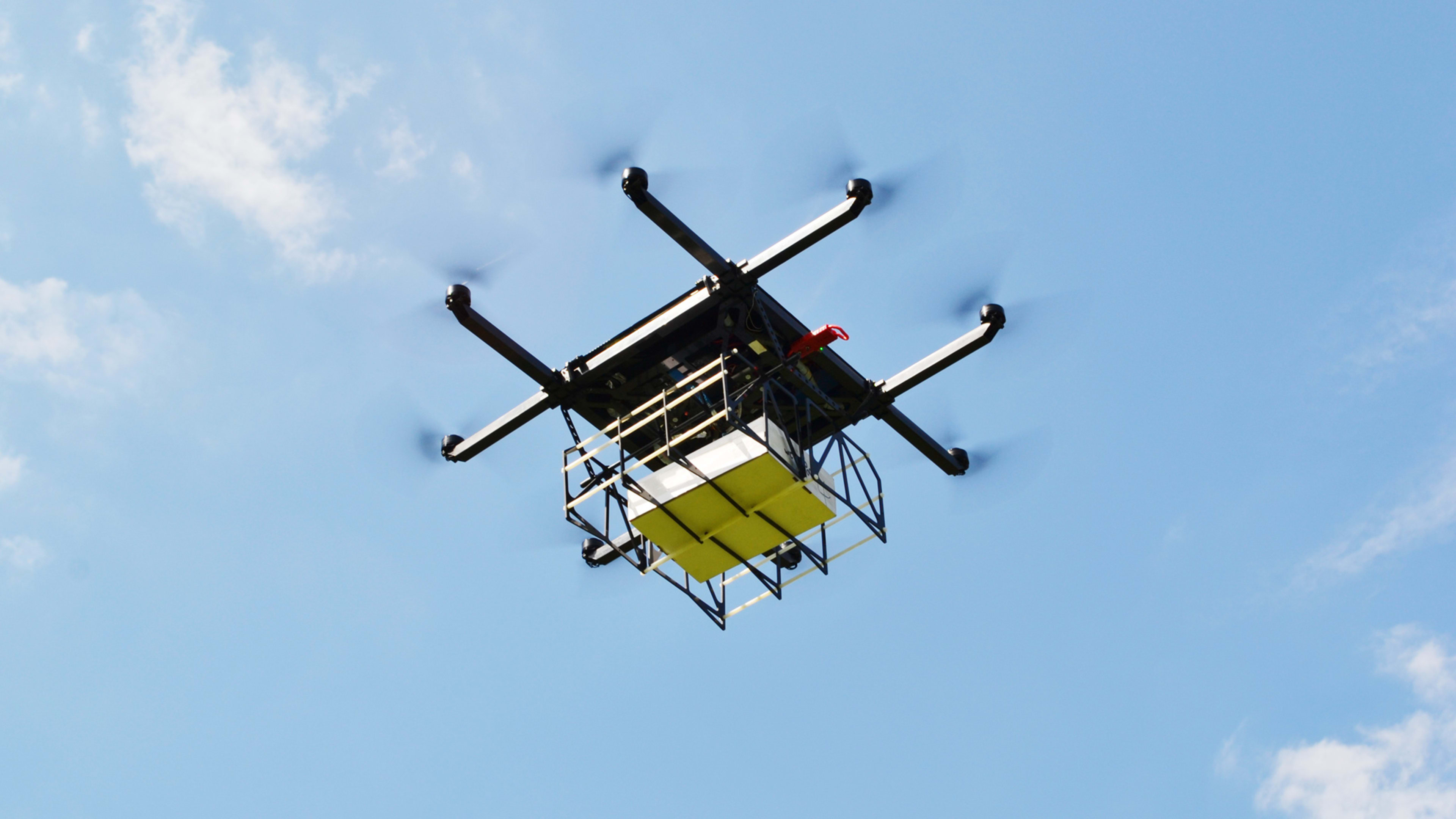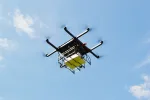At a small airport in Ohio, a truck manufacturer is testing out something decidedly futuristic: Small, retractable drone aircraft that pop off a delivery truck’s roof and fly packages to delivery points a mile away. The manufacturer, the Workhorse Group, thinks drones can cut gas costs and increase efficiency for companies like UPS. But first, it needs to get the technology right.
“We saw that delivery drones will be in the mix for the future,” Workhorse Group CEO Steve Burns told Fast Company. “That’s why we built our own delivery drone that’s integrated into the truck. We saw early on that from a central warehouse in suburbia, where you deploy local delivery trucks, it makes sense logistically to have the drones fly off the top of the truck and back to wherever the truck is. A driver is in vicinity, and they know where the delivery is.”

Workhorse’s drone, the HorseFly, is being developed in conjunction with the University of Cincinnati. Weighing 18 pounds with a battery, it can carry a package that weighs up to 10 pounds and is designed for short flights of approximately one mile each way. It automatically recharges its battery every time it lands on its landing pad–the roof of one of the Workhorse Group’s electric delivery vehicles. In December, the company received a FAA exemption allowing it to test the drones; the company then went public on Nasdaq the following month.
Of course, delivery drones are in the media, thanks to Amazon’s highly publicized drone delivery program. Another company, Flirtey, recently made the first legal delivery via drone in the United States earlier this year when it used a drone to transport supplies to a Virginia pharmacy. Then there are the illegal drone deliveries: criminals flying unmanned vehicles containing smuggled drugs and smartphones over prison walls.
I asked Burns what the point of a delivery drone is. After all, isn’t that why we have delivery trucks in the first place? He explained that the goal is efficiency. In the example he gave me, a driver at a company like UPS could have three or four deliveries that are closely spaced together, but one outlying house that is a considerable detour from the route. Burns argues that the driver could simply place the delivery on a drone. It would fly off while the driver serviced the bulk of the route. The drone would automatically return to the truck when done.
Workhorse’s bread and butter is in manufacturing electric delivery trucks. UPS purchased approximately 125 electric trucks from the company earlier this summer, and Workhorse is one of several companies bidding on a lucrative Postal Service contract alongside much bigger names like Ford, Fiat Chrysler, and Nissan.
Notably, Workhorse’s proposal to the Postal Service includes delivery drones very similar to the one Burns described to Fast Company. The company contends that the agency, which has to do more with fewer resources, can become more efficient and fulfill its mission better with truck-mounted drones. “When you’re buying so many vehicles, you can take a look at it,” Burns says.

Meanwhile, there’s still quite a lot of logistical work to be done. As Burns explained to me, truck drivers wouldn’t actually be doing double duty as drone pilots. They would confirm that an address is correct and push a deploy button, and then GPS and autopilot capabilities would take over the work. A human pilot, monitoring multiple drones from a remote location, would then guide the drone to a safe delivery once it arrives near a destination. A homing beacon would then essentially guide the drone back to the truck’s new location.
Workhorse is testing truck-based launches of the eight-rotored unmanned aircraft now at the Wilmington Air Park in Wilmington, Ohio.
Recognize your brand’s excellence by applying to this year’s Brands That Matter Awards before the final deadline, June 7.
Sign up for Brands That Matter notifications here.





